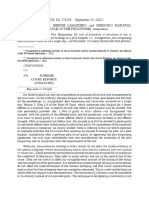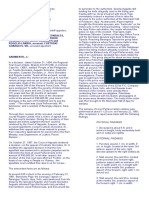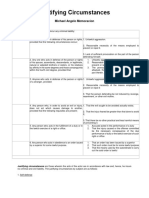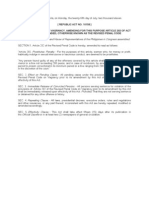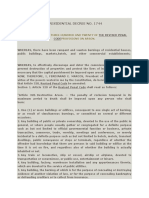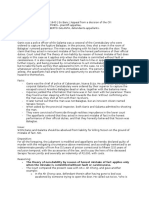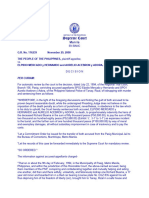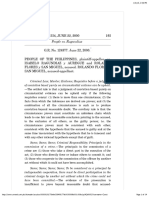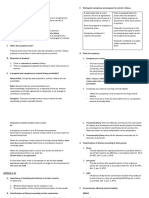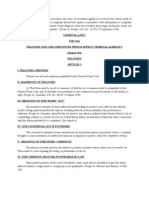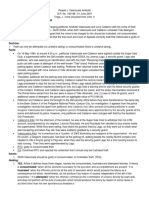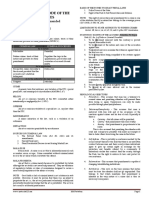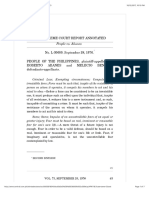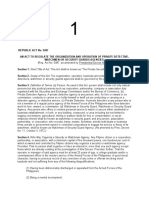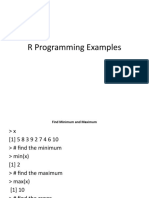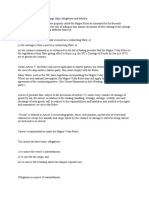0% found this document useful (0 votes)
207 views18 pagesCriminal Law, Business and Cyber Crimes With Torts: Prepared By: Atty. Ginber M. Luna
1) Proximate cause is the cause that produces an injury in a natural and continuous sequence without being interrupted by an efficient intervening cause.
2) Impossible crimes involve performing an act with evil intent that would be a felony against persons or property, but is inherently impossible to accomplish or the means used are inadequate or ineffectual. The penalty is found in Article 59 of the RPC.
3) Article 5 discusses acts that appear unpunishable by law but should be repressed, as well as cases where penalties appear clearly excessive. The judge must report such cases to recommend new legislation or executive clemency.
Uploaded by
Ginber LunaCopyright
© © All Rights Reserved
We take content rights seriously. If you suspect this is your content, claim it here.
Available Formats
Download as PPTX, PDF, TXT or read online on Scribd
0% found this document useful (0 votes)
207 views18 pagesCriminal Law, Business and Cyber Crimes With Torts: Prepared By: Atty. Ginber M. Luna
1) Proximate cause is the cause that produces an injury in a natural and continuous sequence without being interrupted by an efficient intervening cause.
2) Impossible crimes involve performing an act with evil intent that would be a felony against persons or property, but is inherently impossible to accomplish or the means used are inadequate or ineffectual. The penalty is found in Article 59 of the RPC.
3) Article 5 discusses acts that appear unpunishable by law but should be repressed, as well as cases where penalties appear clearly excessive. The judge must report such cases to recommend new legislation or executive clemency.
Uploaded by
Ginber LunaCopyright
© © All Rights Reserved
We take content rights seriously. If you suspect this is your content, claim it here.
Available Formats
Download as PPTX, PDF, TXT or read online on Scribd
/ 18





